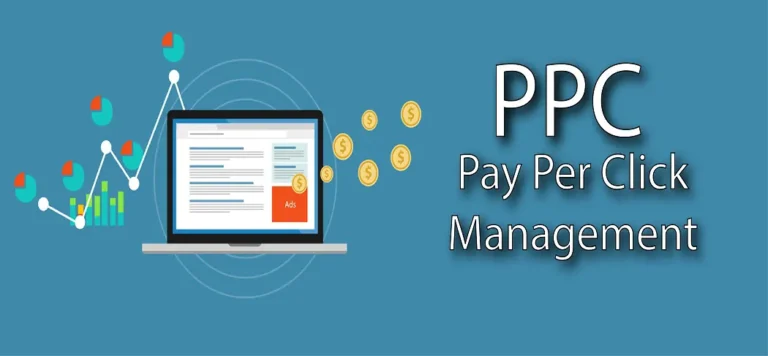Key Takeaways:
- Understand the importance of data-driven decisions in PPC management.
- Discover emerging trends and tools shaping the future of PPC.
- Learn strategies to optimize your PPC campaigns for better ROI.
- Gain insights into how automation and AI are transforming the PPC landscape.
Introduction to Modern PPC Management
Pay-per-click (PPC) advertising remains a critical component of an effective strategy in today’s digital marketing world. As the landscape continuously evolves, staying updated with the latest trends and strategies is essential for maximizing ROI. Partnering with the best PPC Agency can significantly enhance your marketing efforts, ensuring you stay ahead of the competition.
Understanding the nuances of PPC management can significantly improve the success of your campaigns. From strategic keyword utilization to ad copy optimization, every detail matters. This article will explore key trends, strategies, and the role of emerging technologies in shaping the future of PPC management.
The Importance of Data-Driven Decisions
Data-driven decisions are the backbone of successful PPC campaigns. When you use data effectively, you can pinpoint which keywords and ad copies yield the best results, allowing for constant refining of your strategy. Advanced analytics platforms can provide insights into user behavior, helping marketers to optimize ad spend and improve ROI.
Companies that adopt data-driven marketing strategies can see a significant increase in ROI. By leveraging detailed data analytics, you can refine targeting, budgeting, and bid adjustments. This process not only enhances campaign performance but also ensures that your ad budget is being used efficiently. Data allows for better segmentation and personalization, critical factors in improving conversion rates.
Emerging Trends in PPC
The PPC landscape is constantly evolving, with new trends that can shape how businesses approach their campaigns. One of the most notable trends is the rise of voice search. With the proliferation of smart speakers and virtual assistants, optimizing PPC campaigns for voice search is becoming increasingly important. Voice search queries are longer and more conversational, so integrating these into your keyword strategy can yield better results.
Another emerging trend is the focus on social media advertising, especially on platforms like Instagram and TikTok. These platforms are gaining significant traction due to their high engagement rates and visual-centric content. Social media PPC campaigns often offer more precise targeting options, allowing marketers to reach specific demographics and user interests. Investing in these platforms can provide a competitive edge and increase brand visibility among younger audiences.
Automation and AI in PPC
Automation and Artificial Intelligence (AI) are revolutionizing how PPC campaigns are managed. These technologies simplify tasks and enable more precise and efficient campaign management. Automation tools can handle bid adjustments, ad placements, and keyword research, reducing the need for manual interventions and minimizing human errors.
AI, in particular, can analyze vast amounts of data to predict trends and suggest improvements. For instance, machine learning algorithms can determine which ads are more likely to convert and allocate budget accordingly. AI-driven tools can also provide real-time adjustments, ensuring your campaigns are continually optimized for the highest performance. This degree of accuracy and productivity can significantly increase return on investment and free up time for marketers to concentrate on creative and strategic planning.
Strategies to Optimize Your PPC Campaigns
- Regular A/B Testing: A/B testing different ad copies and landing pages can help identify what works best. By experimenting with various elements, such as headlines, call-to-action buttons, and images, marketers can determine the most effective combinations to boost conversions.
- Keyword Optimization: Continuously refine and test your keyword strategy to ensure you’re targeting the most effective terms. Long-tail keywords, in particular, can drive more targeted traffic and often have less competition, resulting in lower CPCs.
- Audience Segmentation: Create demographic, behavioral, and interest-based audience segments to better target your advertisements. Users who find more meaning in personalized ads experience higher engagement and conversion rates.
- Utilizing Negative Keywords: Employ negative keywords to weed out pointless traffic and cut down on unnecessary expenses. By eliminating non-converting search terms, you can focus your budget on keywords more likely to generate valuable clicks.
Measuring Success in PPC
Effective PPC management is not just about setting up and running campaigns; it’s about continuously measuring and refining them. Key Performance Indicators (KPIs) such as Click-Through Rate (CTR), Cost Per Click (CPC), and Conversion Rate should be closely monitored. Regularly reviewing these metrics helps identify areas for improvement and ensures that your campaigns are on track to meet their objectives.
Tools like Google Analytics and other advanced reporting tools can provide in-depth insights into campaign performance. These tools offer various metrics and reports that help understand user behavior, track conversions, and attribute sales. By examining this data, marketers may decide how to optimize their campaigns. Continuous monitoring and adjustment are crucial for maintaining the efficiency and effectiveness of PPC efforts.
The Future of PPC Management
PPC management strategies will advance along with technology. The increased AI and machine learning integration will further automate and personalize campaigns, taking precision targeting to new heights. Predictive analytics, for example, can forecast trends and recommend budget allocations to maximize ROI. This technology can also identify new keyword opportunities and optimize ad copy based on performance data.
Staying informed on industry developments and being adaptable to these changes will be vital to succeeding in the ever-changing world of PPC. Marketers should continuously learn and upgrade their skills to keep pace with technological advancements. Networking with industry experts and participating in relevant forums and webinars can also provide valuable insights and foster innovative thinking. Embracing change and leveraging new tools and techniques will ensure your PPC strategies remain competitive and effective.
Staying Ahead in the PPC Game
In conclusion, given the ongoing developments in data analytics and technology, the future of PPC management appears bright. Businesses can optimize their PPC campaigns and achieve better results by staying updated on emerging trends, leveraging automation, and making data-driven decisions. Remember, the key to PPC success lies in continuous learning and adaptation.
Whether you are a seasoned marketer or a novice, knowing and using these tactics can help you keep one step ahead of the competition. With the right approach and tools, you can ensure that your PPC campaigns deliver exceptional results and contribute to the overall success of your marketing efforts.




